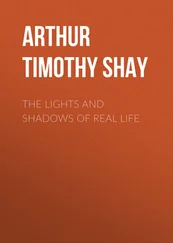Владимир Набоков - The Real Life of Sebastian Knight
Здесь есть возможность читать онлайн «Владимир Набоков - The Real Life of Sebastian Knight» весь текст электронной книги совершенно бесплатно (целиком полную версию без сокращений). В некоторых случаях можно слушать аудио, скачать через торрент в формате fb2 и присутствует краткое содержание. Жанр: Классическая проза, на английском языке. Описание произведения, (предисловие) а так же отзывы посетителей доступны на портале библиотеки ЛибКат.
- Название:The Real Life of Sebastian Knight
- Автор:
- Жанр:
- Год:неизвестен
- ISBN:нет данных
- Рейтинг книги:5 / 5. Голосов: 1
-
Избранное:Добавить в избранное
- Отзывы:
-
Ваша оценка:
- 100
- 1
- 2
- 3
- 4
- 5
The Real Life of Sebastian Knight: краткое содержание, описание и аннотация
Предлагаем к чтению аннотацию, описание, краткое содержание или предисловие (зависит от того, что написал сам автор книги «The Real Life of Sebastian Knight»). Если вы не нашли необходимую информацию о книге — напишите в комментариях, мы постараемся отыскать её.
The Real Life of Sebastian Knight — читать онлайн бесплатно полную книгу (весь текст) целиком
Ниже представлен текст книги, разбитый по страницам. Система сохранения места последней прочитанной страницы, позволяет с удобством читать онлайн бесплатно книгу «The Real Life of Sebastian Knight», без необходимости каждый раз заново искать на чём Вы остановились. Поставьте закладку, и сможете в любой момент перейти на страницу, на которой закончили чтение.
Интервал:
Закладка:
It is curious to note that Mr Goodman, quoting the same passage, is content to comment that 'Sebastian Knight was so enamoured of the burlesque side of things and so incapable of caring for their serious core that he managed, without being by nature either callous or cynical, to make fun of intimate emotions, rightly held sacred by the rest of humanity'. No wonder this solemn biographer is out of tune with his hero at every point of the story.
For reasons already mentioned I shall not attempt to describe Sebastian's boyhood with anything like the methodical continuity which I would have normally achieved had Sebastian been a character of fiction. Had it been thus I could have hoped to keep the reader instructed and entertained by picturing my hero's smooth development from infancy to youth. But if I should try this with Sebastian the result would be one of those 'biographies romancйes' which are by far the worst kind of literature yet invented. So let the door be closed leaving but a thin line of taut light underneath, let that lamp go out too in the neighbouring room where Sebastian has gone to bed; let the beautiful olivaceous house on the Nova embankment fade out gradually in the grey-blue frosty night, with gently falling snowflakes lingering in the moon-white blaze of the tall street lamp and powdering the mighty limbs of the two bearded corbel: figures which support with an Atlas-like effort the oriel of my father's room. My father is dead, Sebastian is asleep, or at least mouse-quiet, in the next room – and I am lying in bed, wide awake, staring into the darkness.
Some twenty years later, I undertook a journey to Lausanne in order to find the old Swiss lady who had been first Sebastian's governess, then mine. She must have been about fifty when she left us in 1914; correspondence between us had long ceased, so I was not at all sure of finding her still alive, in 1936. But I did. There existed, as I discovered, a union of old Swiss women who had been governesses in Russia before the Revolution. They 'lived in their past', as the very kind gentleman who guided me there explained; spending their last years – and most of these ladies were decrepit and dotty – comparing notes, having petty feuds with one another and reviling the state of affairs in the Switzerland they had discovered after their many years of life in Russia. Their tragedy lay in the fact that during all those years spent in a foreign country they had kept absolutely immune to its influence (even to the extent of not learning the simplest Russian words); somewhat hostile to their surroundings – how often have I heard Mademoiselle bemoan her exile, complain of being slighted and misunderstood, and yearn for her fair native land; but when these poor wandering souls came home, they found themselves complete strangers in a changed country, so that by a queer trick of sentiment – Russia (which to them had really been an unknown abyss, remotely rumbling beyond a lamplit comer of a stuffy back room with family photographs in mother-of-pearl frames and a water-colour view of Chillon castle), unknown Russia now took on the aspect of a lost paradise, a vast, vague but retrospectively friendly place, peopled with wistful fancies. I found Mademoiselle very deaf and grey, but as voluble as ever, and after the first effusive embraces she started to recall little facts of my childhood which were either hopelessly distorted, or so foreign to my memory that I doubted their past reality. She knew nothing of my mother's death; nor did she know of Sebastian's having died three months ago. Incidentally, she was also ignorant of his having been a great writer. She was very tearful and her tears were very sincere, but it seemed to annoy her somehow that I did not join in the crying. 'You were always so self-controlled,' she said. I told her I was writing a book about Sebastian and asked her to talk about his childhood. She had come to our house soon after my father's second marriage, but the past in her mind was so blurred and displaced that she talked of my father's first wife ('cette horrible Anglaise') as if she had known her as well as she had my mother ('cette femme admirable'). 'My poor little Sebastian,' she wailed, 'so tender to me, so noble. Ah, how I remember the way he had of flinging his little arms round my neck and saying, "I hate everybody except you, Zelle, you alone understand my soul." And that day when I gently smacked his hand – une toute petite tape – for being rude to your mother – the expression of his eyes – it made me want to cry – and his voice when he said: "I am grateful to you, Zelle. It shall never happen again…."'
She went on in this fashion for quite a long time, making me dismally uncomfortable. I managed at last, after several fruitless attempts, to turn the conversation – I was quite hoarse by that time as she had mislaid her ear-trumpet. Then she spoke of her neighbour, a fat little creature still older than she, whom I had met in the passage. 'The good woman is quite deaf,' she complained, 'and a dreadful liar. I know for certain that she only gave lessons to the Princess Demidov's children – never lived there.' 'Write that book, that beautiful book,' she cried as I was leaving, 'make it a fairy-tale with Sebastian for prince. The enchanted prince… Many a time have I said to him: Sebastian, be careful, women will adore you. And he would reply with a laugh: Well, I'll adore women too….'
I squirmed inwardly. She gave me a smacking kiss and patted my hand and was tearful again. I glanced at her misty old eyes, at the dead lustre of her false teeth, at the well-remembered garnet brooch on her bosom…. We parted. It was raining hard and I felt ashamed and cross at having interrupted my second chapter to make this useless pilgrimage. One impression especially upset me. She had not asked one single thing about Sebastian's later life, not a single question about the way he had died, nothing.
3
In November of 1918 my mother resolved to flee with Sebastian and myself from the dangers of Russia. Revolution was in full swing, frontiers were closed. She got in touch with a man who had made smuggling refugees across the border his profession, and it was settled that for a certain fee, one half of which was paid in advance, he would get us to Finland. We were to leave the train just before the frontier, at a place we could lawfully reach, and then cross over by secret paths, doubly, trebly secret owing to the heavy snowfalls in that silent region. At the starting-point of our train journey, we found ourselves, my mother and I, waiting for Sebastian, who, with the heroic help of Captain Belov, was trundling the luggage from house to station. The train was scheduled to start at 8.40 a.m. Half past and still no Sebastian. Our guide was already in the train and sat quietly reading a newspaper; he had warned my mother that in no circumstances should she talk to him in public, and as the time passed and the train was preparing to leave, a nightmare feeling of numb panic began to come over us. We knew that the man in accordance with the traditions of his profession, would never renew a performance that had misfired at the outset. We knew too that we could not again afford the expenses of flight. The minutes passed and I felt something gurgling desperately in the pit of my stomach. The thought that in a minute or two the train would move off and that we should have to return to a dark cold attic (our house had been nationalized some months ago) was utterly disastrous. On our way to the station we had passed Sebastian and Belov pushing the heavily burdened wheelbarrow through the crunching snow. This picture now stood motionless before my eyes (I was a boy of thirteen and very imaginative) as a charmed thing doomed to its paralysed eternity. My mother, her hands in her sleeves and a wisp of grey hair emerging from beneath her woollen kerchief, walked to and fro, trying to catch the eye of our guide every time she passed by his window. Eight forty-five, eight fifty…. The train was late in starting, but at last the whistle blew, a rush of warm white smoke raced its shadow across the brown snow on the platform, and at the same time Sebastian appeared running, the earflaps of his fur cap flying in the wind. The three of us scrambled into the moving train. It took some time before he managed to tell us that Captain Belov had been arrested in the street just as they were passing the house where he had lived before, and that leaving the luggage to its fate, he, Sebastian, had made a desperate dash for the station. A few months later we learned that our poor friend had been shot, together with a score of people in the same batch, shoulder to shoulder with Palchin, who died as bravely as Belov.
Читать дальшеИнтервал:
Закладка:
Похожие книги на «The Real Life of Sebastian Knight»
Представляем Вашему вниманию похожие книги на «The Real Life of Sebastian Knight» списком для выбора. Мы отобрали схожую по названию и смыслу литературу в надежде предоставить читателям больше вариантов отыскать новые, интересные, ещё непрочитанные произведения.
Обсуждение, отзывы о книге «The Real Life of Sebastian Knight» и просто собственные мнения читателей. Оставьте ваши комментарии, напишите, что Вы думаете о произведении, его смысле или главных героях. Укажите что конкретно понравилось, а что нет, и почему Вы так считаете.













the net the easiest thing to be aware of.
I say to you, I certainly get annoyed whilst people
think about worries that they plainly don't recognize about.
You controlled to hit the nail upon the highest and defined out the whole thing without having side-effects , other folks can take a signal.
Will likely be back to get more. Thank you